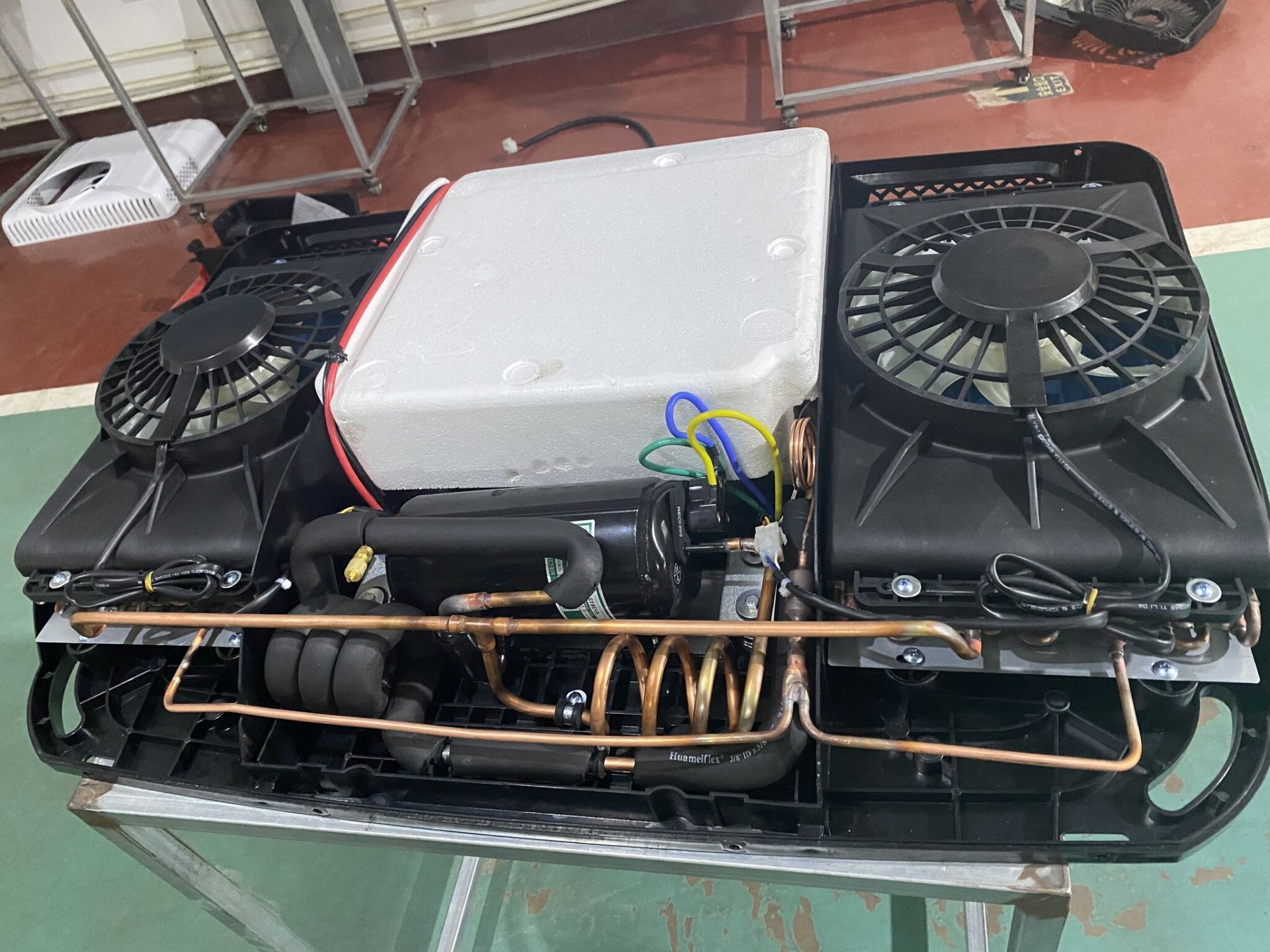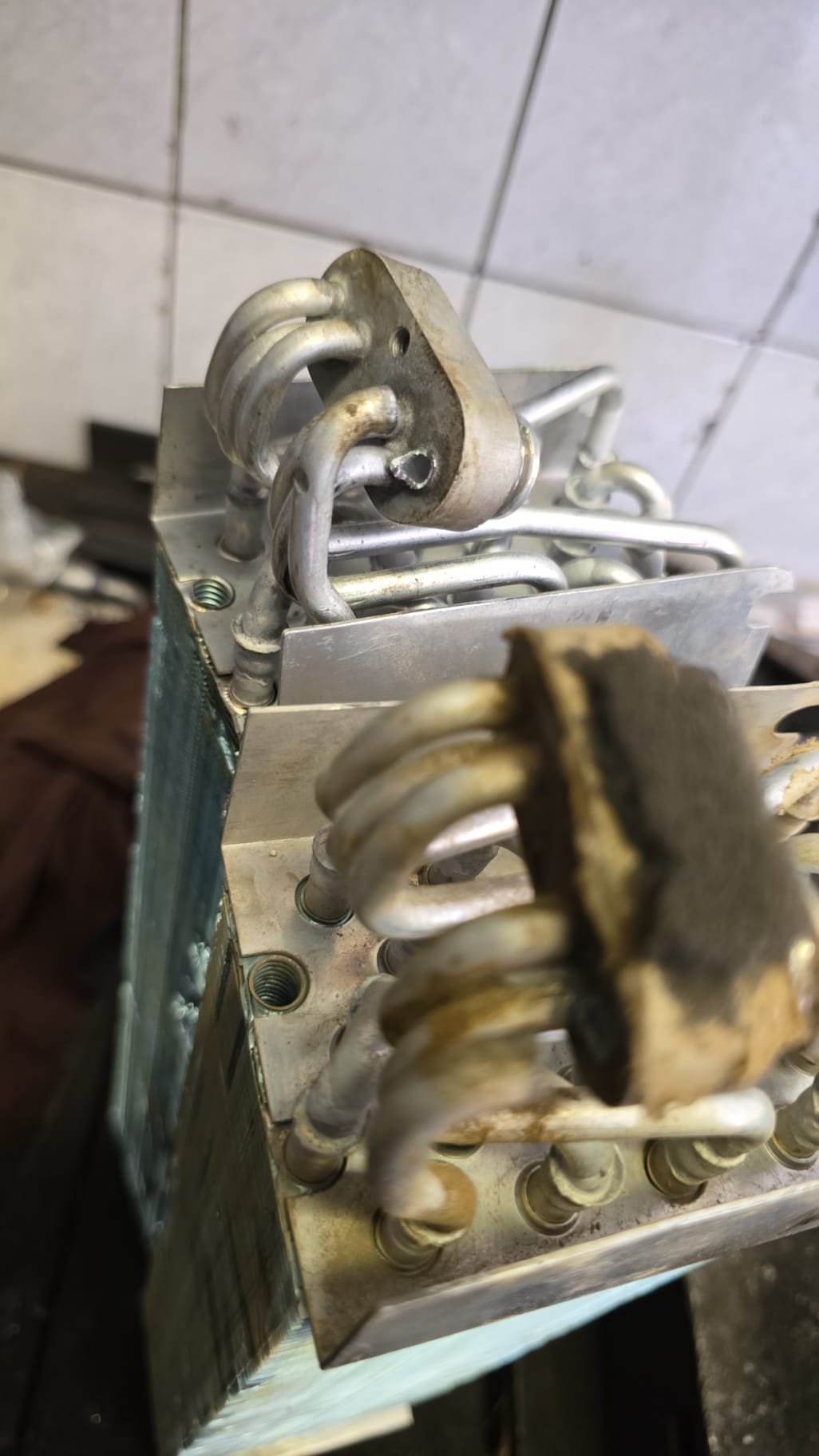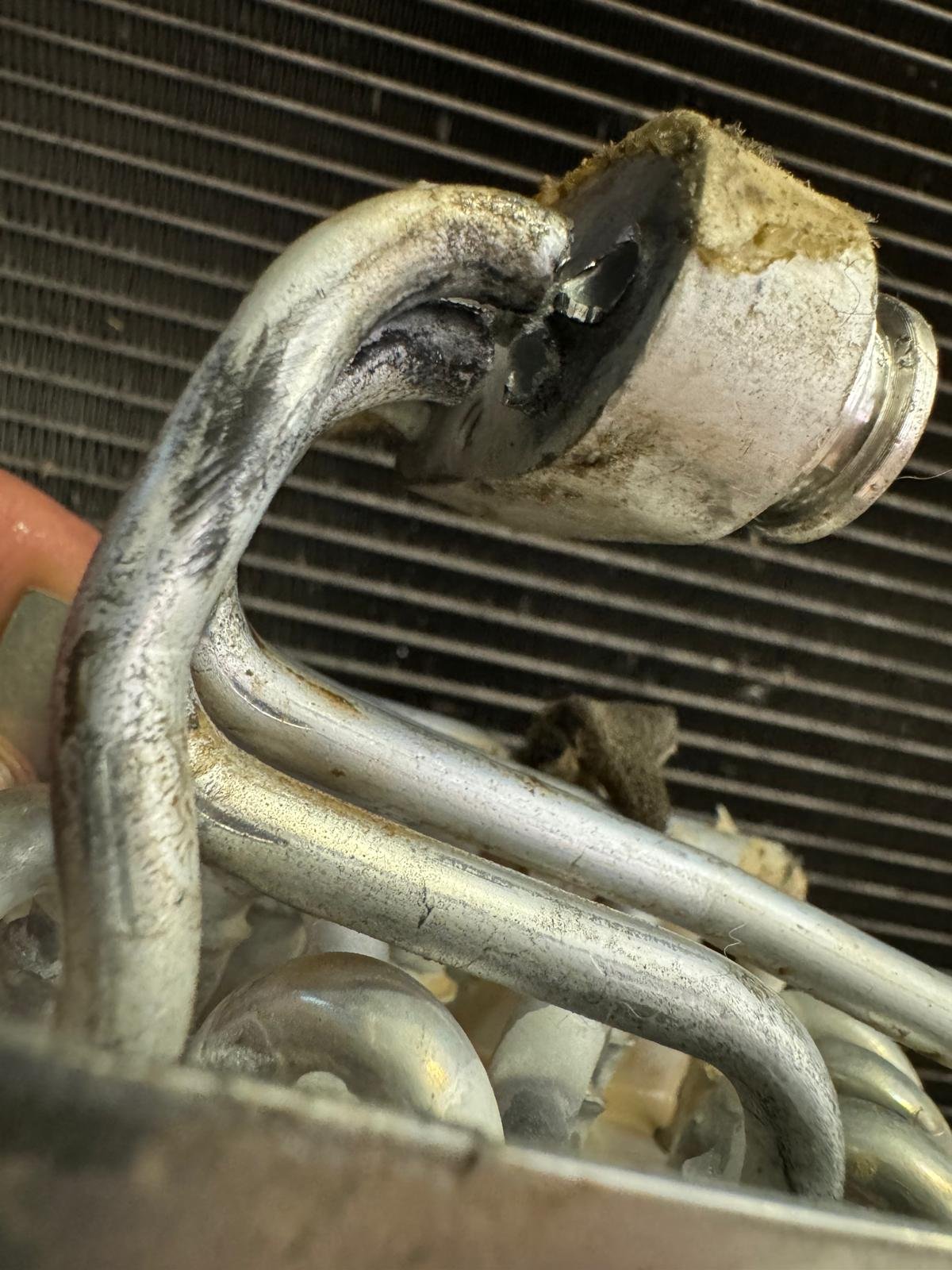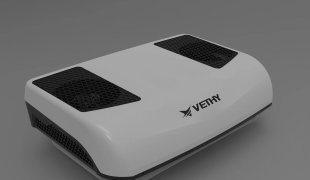Why copper pipes have completely replaced aluminum pipes in the parking air conditioning market?
September 22, 2024
Copper pipe is a superior choice for parking air conditioners compared to aluminum pipe due to its exceptional corrosion resistance. This attribute is crucial in the harsh environment of a parking lot, where exposure to moisture, road salts, and other corrosive elements is inevitable.
Unlike aluminum, copper forms a protective oxide layer on its surface when exposed to oxygen. This layer acts as a barrier, preventing further corrosion and maintaining the integrity of the pipe. Aluminum, on the other hand, forms a less protective oxide layer that is more susceptible to breakdown, leading to corrosion and potential leaks.
The corrosion resistance of copper is particularly advantageous in areas with high humidity or frequent rainfall. Moisture can penetrate aluminum pipes through microscopic cracks or imperfections, leading to internal corrosion and weakening of the pipe. Copper's protective oxide layer effectively prevents such moisture ingress, ensuring long-term durability.
Furthermore, copper is resistant to the corrosive effects of road salts, which are commonly used to melt ice and snow in parking lots. These salts can cause severe pitting and corrosion in aluminum pipes, compromising their structural integrity. Copper's resistance to road salts ensures that the air conditioner's piping system remains intact and functional even in harsh winter conditions.
In addition to its corrosion resistance, copper also offers other advantages over aluminum. It is stronger and more durable, making it less susceptible to damage from external forces. Copper is also a better conductor of heat, which can improve the efficiency of the air conditioner.
“Our VS02 PRO internal copper pipe”

While aluminum pipe may be initially less expensive than copper, its susceptibility to corrosion and shorter lifespan can result in higher maintenance and replacement costs over time. Copper pipe, with its superior corrosion resistance and durability, provides a more cost-effective solution in the long run.
In conclusion, copper pipe is the preferred choice for parking air conditioners due to its exceptional corrosion resistance. Its ability to withstand moisture, road salts, and other corrosive elements ensures the longevity and reliability of the air conditioner's piping system, making it a wise investment for any parking facility.Copper pipe surpasses aluminum pipe as the superior choice for parking air conditioners due to its exceptional durability and longevity. Unlike aluminum, copper exhibits remarkable resistance to corrosion, ensuring its integrity even in harsh environments. This resistance stems from the formation of a protective oxide layer on the copper surface, which effectively shields it from the corrosive effects of moisture, salt, and other elements.
Furthermore, copper's inherent strength and malleability contribute to its durability. Its high tensile strength enables it to withstand the rigors of installation and operation, while its malleability allows for easy bending and shaping, reducing the risk of damage during installation. In contrast, aluminum is more susceptible to bending and kinking, which can compromise its structural integrity.
The durability of copper pipe also translates into a longer lifespan. Copper pipes typically last for decades, far exceeding the lifespan of aluminum pipes. This extended lifespan reduces the need for costly repairs and replacements, resulting in significant savings over the long term.
In addition to its durability, copper pipe offers several other advantages over aluminum pipe. Its high thermal conductivity ensures efficient heat transfer, which is crucial for maintaining optimal cooling performance in parking air conditioners. Copper's antimicrobial properties also inhibit the growth of bacteria and mold, promoting a healthier indoor environment.
While aluminum pipe may be initially less expensive than copper pipe, its shorter lifespan and susceptibility to corrosion ultimately make it a less cost-effective option. The durability and longevity of copper pipe justify its higher upfront cost, providing a more reliable and long-lasting solution for parking air conditioners.
“After the parking air conditioner using aluminum pipes is corroded”


In conclusion, copper pipe is the superior choice for parking air conditioners due to its exceptional durability, corrosion resistance, strength, and longevity. Its ability to withstand harsh environments, its ease of installation, and its extended lifespan make it a more cost-effective and reliable option compared to aluminum pipe. By choosing copper pipe, parking air conditioner owners can ensure optimal cooling performance, a healthier indoor environment, and peace of mind for years to come.Heat Transfer Efficiency Copper pipe is a superior choice for parking air conditioners compared to aluminum pipe due to its exceptional heat transfer efficiency. This enhanced efficiency stems from several key factors.
Firstly, copper possesses a higher thermal conductivity than aluminum. This means that copper can transfer heat more effectively, allowing for a more efficient cooling process. The higher thermal conductivity of copper enables it to dissipate heat more rapidly, resulting in a more consistent and effective cooling performance.
Secondly, copper has a lower coefficient of thermal expansion than aluminum. This property ensures that copper pipes are less susceptible to changes in temperature, which can lead to expansion and contraction. The reduced thermal expansion of copper pipes minimizes the risk of leaks and ensures a more reliable and durable cooling system.
Furthermore, copper is more resistant to corrosion than aluminum. This resistance to corrosion is particularly important in parking environments, where exposure to moisture and chemicals can be significant. The corrosion resistance of copper pipes ensures a longer lifespan and reduces the likelihood of costly repairs or replacements.
In addition to its superior heat transfer efficiency, copper pipe also offers several other advantages. Copper is a lightweight material, making it easier to handle and install. It is also highly malleable, allowing for easy bending and shaping to accommodate various installation requirements.
While aluminum pipe may be less expensive than copper pipe, its inferior heat transfer efficiency, higher coefficient of thermal expansion, and lower corrosion resistance make it a less suitable choice for parking air conditioners. The long-term benefits and reliability of copper pipe far outweigh the initial cost difference.
In conclusion, copper pipe is the preferred choice for parking air conditioners due to its exceptional heat transfer efficiency, low coefficient of thermal expansion, and high corrosion resistance. These properties ensure a more efficient cooling performance, increased durability, and reduced maintenance costs, making copper pipe the optimal choice for reliable and effective air conditioning systems in parking environments.Pressure Resistance Copper pipe outperforms aluminum pipe as the preferred choice for parking air conditioners due to its superior pressure resistance. This attribute is crucial in ensuring the safe and efficient operation of the air conditioning system.
Copper's inherent strength and durability enable it to withstand the high pressures generated within the air conditioning system. Unlike aluminum, which is prone to deformation and rupture under pressure, copper maintains its structural integrity, preventing leaks and potential system failures. This reliability is particularly important in parking environments, where the air conditioner may be subjected to vibrations and other external forces.
Furthermore, copper's resistance to corrosion enhances its longevity and performance. Aluminum, on the other hand, is susceptible to corrosion, which can weaken the pipe and compromise its pressure-bearing capacity. Over time, corrosion can lead to leaks, reduced efficiency, and premature system failure. Copper's corrosion resistance ensures that the air conditioner operates at optimal levels throughout its lifespan.
The pressure resistance of copper pipe also contributes to the overall safety of the air conditioning system. In the event of a pressure surge or system malfunction, copper's ability to withstand high pressures prevents catastrophic failures that could pose a risk to occupants or property. Aluminum's lower pressure resistance increases the likelihood of pipe rupture, potentially releasing refrigerant or other hazardous substances into the environment.
In addition to its pressure resistance, copper pipe offers several other advantages over aluminum. Its superior heat transfer properties enhance the efficiency of the air conditioning system, while its flexibility allows for easier installation and maintenance. Copper's antimicrobial properties also contribute to a healthier indoor environment by inhibiting the growth of bacteria and mold.
In conclusion, copper pipe is the superior choice for parking air conditioners due to its exceptional pressure resistance. Its strength, durability, and corrosion resistance ensure the safe and efficient operation of the air conditioning system, while its other advantages contribute to its overall performance and longevity. Aluminum pipe, with its lower pressure resistance and susceptibility to corrosion, falls short in meeting the demanding requirements of parking air conditioners.Flexibility Copper pipe is a superior choice for parking air conditioners compared to aluminum pipe due to its exceptional flexibility. This attribute is crucial in parking air conditioner applications where space constraints and complex routing are often encountered.
Copper's malleability allows it to be easily bent and shaped without kinking or cracking, enabling it to navigate tight corners and obstacles. This flexibility simplifies installation, reduces the need for additional fittings, and minimizes the risk of leaks. In contrast, aluminum pipe is more rigid and prone to bending, which can lead to damage and potential refrigerant leaks.
Furthermore, copper's flexibility facilitates the creation of custom bends and angles, allowing for precise alignment with the air conditioner unit and other components. This precision ensures optimal airflow and cooling performance, as well as a clean and professional-looking installation.
In addition to its flexibility, copper pipe offers superior corrosion resistance compared to aluminum. This is particularly important in parking environments where exposure to moisture, salt, and other corrosive elements is common. Copper's natural resistance to corrosion ensures a longer lifespan and reduces the risk of leaks and failures.
Moreover, copper pipe has a higher thermal conductivity than aluminum, which enhances heat transfer efficiency. This property allows for more efficient cooling and reduces the energy consumption of the air conditioner.
The long-term benefits and reliability of copper pipe outweigh the initial cost difference.
In conclusion, copper pipe is the preferred choice for parking air conditioners due to its exceptional flexibility, corrosion resistance, and thermal conductivity. These attributes ensure ease of installation, durability, and optimal cooling performance, making copper pipe the superior choice for this demanding application.Cost-Effectiveness Copper pipe is a superior choice for parking air conditioners compared to aluminum pipe due to its exceptional durability, corrosion resistance, and cost-effectiveness.
Copper's inherent strength and malleability make it highly resistant to mechanical damage, ensuring a longer lifespan for the air conditioning system. Unlike aluminum, which is prone to cracking and bending, copper pipes can withstand the rigors of parking lot environments, including heavy vehicle traffic and accidental impacts. This durability translates into reduced maintenance costs and a lower likelihood of costly repairs or replacements.
Furthermore, copper's exceptional corrosion resistance is crucial in parking lot settings. Exposure to moisture, road salts, and other corrosive elements can quickly deteriorate aluminum pipes, leading to leaks and reduced efficiency. Copper, on the other hand, forms a protective oxide layer that shields it from corrosion, ensuring a reliable and long-lasting performance. This corrosion resistance eliminates the need for frequent pipe replacements, further reducing maintenance expenses.
In terms of cost-effectiveness, copper pipe may initially appear more expensive than aluminum. However, its superior durability and longevity make it a more economical choice in the long run. The reduced maintenance costs and extended lifespan of copper pipes offset the initial investment, resulting in significant savings over the life of the air conditioning system.
Additionally, copper's high thermal conductivity enhances the efficiency of the air conditioner. It allows for faster heat transfer, reducing energy consumption and lowering operating costs. This energy efficiency further contributes to the overall cost-effectiveness of copper pipes.
In conclusion, copper pipe is the superior choice for parking air conditioners due to its exceptional durability, corrosion resistance, and cost-effectiveness. Its ability to withstand mechanical damage, resist corrosion, and enhance energy efficiency makes it a wise investment that will provide reliable and cost-effective cooling for years to come.Environmental Impact Copper pipe is a superior choice for parking air conditioners compared to aluminum pipe due to its exceptional durability, corrosion resistance, and environmental friendliness.
Copper's inherent strength and malleability make it highly resistant to mechanical damage, ensuring a longer lifespan for the air conditioning system. Unlike aluminum, which is prone to cracking and bending, copper pipes can withstand the rigors of parking lot conditions, including heavy vehicle traffic and accidental impacts.
Furthermore, copper's exceptional corrosion resistance is crucial in parking environments where exposure to moisture, salt, and chemicals is inevitable. Aluminum, on the other hand, is susceptible to corrosion, which can lead to leaks, reduced efficiency, and premature failure. Copper's resistance to corrosion ensures the integrity of the air conditioning system, minimizing maintenance costs and extending its service life.
In terms of environmental impact, copper is a more sustainable choice than aluminum. Copper is a naturally occurring element that can be recycled indefinitely without losing its properties. In contrast, aluminum production requires significant energy consumption and generates greenhouse gases. By choosing copper, parking lot owners can contribute to reducing the environmental footprint of their air conditioning systems.
Additionally, copper's antimicrobial properties inhibit the growth of bacteria and mold, which can accumulate in air conditioning systems and pose health risks. Aluminum does not possess these antimicrobial properties, making it more susceptible to contamination and potential health hazards.
In conclusion, copper pipe is the superior choice for parking air conditioners due to its durability, corrosion resistance, environmental friendliness, and antimicrobial properties. Its ability to withstand mechanical damage, resist corrosion, and contribute to sustainability makes it the ideal material for ensuring the longevity and efficiency of parking air conditioning systems while minimizing environmental impact.Aesthetics Copper pipe is a superior choice for parking air conditioners compared to aluminum pipe due to its superior aesthetic qualities. The warm, reddish-brown hue of copper lends a classic and sophisticated touch to any parking lot, complementing the surrounding architecture and enhancing the overall visual appeal. In contrast, aluminum pipe's silvery-white color can appear stark and industrial, detracting from the aesthetic harmony of the environment.
Moreover, copper's natural patina, which develops over time, adds a unique and charming character to the pipework. This patina protects the copper from corrosion and further enhances its aesthetic appeal. Aluminum, on the other hand, does not develop a patina and is prone to oxidation, which can result in an unsightly appearance.
The durability of copper pipe also contributes to its aesthetic longevity. Copper is highly resistant to corrosion and weathering, ensuring that it retains its attractive appearance for many years to come. Aluminum, while lightweight and corrosion-resistant, is more susceptible to mechanical damage and can become dented or scratched, compromising its aesthetic integrity.
Furthermore, copper pipe can be easily painted or coated to match the surrounding décor. This versatility allows for seamless integration into any parking lot design, ensuring that the air conditioning system blends harmoniously with its surroundings. Aluminum pipe, on the other hand, is more difficult to paint or coat, limiting its aesthetic customization options.
In conclusion, copper pipe surpasses aluminum pipe in terms of aesthetics for parking air conditioners. Its warm color, natural patina, durability, and customization options make it an ideal choice for enhancing the visual appeal of any parking lot. By choosing copper pipe, architects and designers can create a visually pleasing and cohesive environment that complements the surrounding architecture and enhances the overall user experience.Availability Copper pipe is a superior choice for parking air conditioners compared to aluminum pipe due to its exceptional durability, corrosion resistance, and ease of installation.
Copper's inherent strength and malleability make it highly resistant to mechanical damage, ensuring a long lifespan for the air conditioning system. Unlike aluminum, which is prone to cracking and bending, copper pipes can withstand the rigors of parking lot environments, including heavy vehicle traffic and accidental impacts.
Furthermore, copper's exceptional corrosion resistance is crucial in parking lots, where exposure to moisture, salt, and chemicals is inevitable. Copper forms a protective oxide layer that prevents corrosion and maintains the integrity of the pipe, ensuring reliable performance over time. Aluminum, on the other hand, is more susceptible to corrosion, which can lead to leaks and system failures.
In terms of installation, copper pipe offers significant advantages. Its flexibility allows for easy bending and shaping, making it adaptable to various parking lot configurations. Copper pipes can be joined using solder or compression fittings, providing secure and leak-proof connections. In contrast, aluminum pipes require specialized tools and techniques for joining, which can be time-consuming and prone to errors.
Additionally, copper pipe is widely available and compatible with most air conditioning systems. Its universal acceptance ensures easy sourcing and replacement if necessary. Aluminum pipe, on the other hand, may have limited availability and compatibility, potentially leading to delays and increased costs.
In conclusion, copper pipe is the preferred choice for parking air conditioners due to its superior durability, corrosion resistance, ease of installation, and widespread availability. Its ability to withstand the harsh conditions of parking lots and provide reliable performance over time makes it the optimal choice for ensuring the efficient and long-lasting operation of air conditioning systems.





